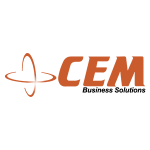
Digital transformation is gradually gaining traction in the construction industry. There is mounting evidence that technologies are being implemented both on-site, where construction is taking place, and at corporate headquarters and regional offices. These technologies improve efficiency and production by streamlining procedures.
For example, workflow and project management software is used to streamline project requirements, timelines, resources, progress tracking, and risk management. Likewise, technology solutions for budget tracking, cost management, communications, and collaboration are also adopted, along with HR and payroll software.
With cloud migration (software as a service and the shift away from on-premise infrastructure), significant progress has been made in creating accessible digitization in favor of engineering and construction management.
The Emergence of Data Silos
However, as software solutions are introduced into the construction management process, data silos and duplication begin to emerge. Data silos refer to the storage of data within different departments of the construction company that is not readily shared with the rest of the company. Data silos can occur due to poor processes as well as fragmented technological implementations used by different departments, such as project management, accounting, and human resources. Though the data required by the systems should be common, it ends up duplicated across systems. This leads to confusion and chaos regarding versions of data, resulting in a lack of accurate and up-to-date information across all departments.
An example of data silos is when a construction company has different systems for project management and accounting. The project management system creates and processes data generated by project timelines, budgets, and task assignments, while the accounting system may have financial data such as invoices and purchase orders. Unfortunately, due to the data silo created by each system, common information may not be accessible to all relevant modules, leading to duplicate data entry and a lack of accessibility to project financials and expenditures.
A further example is when document management and project management are different technology solutions, each with its respective data silos. Each requires the data of the other, which in this case does not easily happen, leading to miscommunication, duplication of data, and incorrect version control of any document.
Another instance of data silos or data duplication arises when construction companies use different software for scheduling and time tracking, as well as HR software for payroll. They have to manually transfer common data across the systems, which can result in inaccuracies, errors, and inconsistencies.
Integrated Solutions Are the Solution
Integrated solutions resulting in the integration of data are required to increase the accuracy and efficiency of the technologies adopted by construction companies and drive better data-driven decision-making.
Accuracy
When solutions and data are integrated across the various departments of a construction company, information remains accurate and consistent across different software systems and services. This consistency is crucial for employee data, vendor data, financial data, and project information, all of which influence decision-making and the overall success of a project.
Efficiency and Data Duplication
When data is integrated, it eliminates duplication across all deployed systems and software. By avoiding the need for duplicate data entry and reducing manual data transfers between systems, businesses can enhance access to and visibility of project-wide information. This leads to time and resource savings, resulting in increased efficiency.
Data Analysis
When solutions from different departments within a construction company are integrated, it enables data analysis that can lead to better decision-making based on comprehensive and accurate information. Access to this integrated data provides a clearer understanding of project financials, budgets, timelines, employee details, project deliverables, and more.
Data Compliance and Governance
Integrated solutions make data control and governance easier to implement. Centralized data allows for effective implementation of governance compliance and protocol requirements.
Increased Collaboration
Integrating data improves collaboration and communication between different departments, increasing productivity and reducing the risk of operational errors.
Automation
An integrated solution landscape automates workflows in the construction process, such as scheduling, resource management, and cost tracking, which improves efficiency and reduces manual errors.
Visibility of Project Progress
Integrated solutions can provide construction companies with more powerful metrics for project progress and performance, allowing project managers to detect and mitigate workflow issues faster.
IoT Solutions
With integrated data, sensors, cameras, and other IoT devices can be seamlessly implemented into construction equipment and facility management to provide real-time data for improved maintenance.
BIM
Building Information Modeling (BIM) is a technology-driven process that enhances collaboration, minimizes errors, and improves the overall quality of construction projects. It facilitates cost estimation, scheduling, and construction management. For BIM to be practical, it must be part of an integrated solution landscape that offers a single source of truth.
Integrated Solutions – The Future of Construction
The construction industry is rapidly embracing digital transformation, with integrated solutions becoming an indispensable tool for companies aiming to thrive in an increasingly complex and competitive landscape. This shift toward integrating data and workflows across various departments – from bidding and cost management to Microsoft Dynamics 365 Implementation – CEM Business Solutions is driven by the undeniable benefits we provide.




